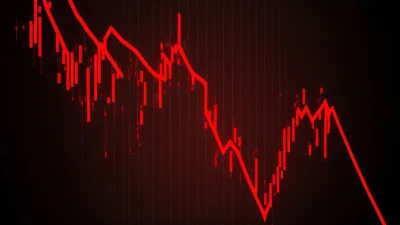Sustainable fund inflows plunge by 91%: Morningstar



Vanguard has seen net outflows from its sustainable funds, described by Morningstar as being “at odds” both with its peers and its previous quarterly performance.
The latest quarterly data showed inflows into Australian and New Zealand sustainable funds fell 91 per cent to an “anaemic” $214 million, down by more than $2.4 billion.
This was due to issues such as market volatility, US regional bank insolvencies, rising interest rates and a merger between Australian Ethical and Christian Super in the previous quarter.
In a rare move, asset manager Vanguard failed to appear in the report’s top 10 quarterly inflows for sustainable funds after reporting net outflows rather than inflows.
Top of the table for quarterly inflows was DFA Australia, which saw $116 million in inflows during the quarter followed by Australian Ethical, BlackRock and Russell Investment Management.
In the firm’s sustainable investing flows landscape report, Morningstar said: “The surprising outcome this quarter was indexing giant Vanguard experiencing net outflows. Vanguard has the second-highest sustainable investment market share and typically records strong inflows relative to its sustainable peers.
“Its outflows are at odds with peers who generated positive inflows, albeit at a more anaemic pace than the previous quarter.
“Vanguard is typically among the top gatherers of assets each quarter; however, this time it delivered net outflows.”
The firm received infringement notices from the Australian Securities and Investments Commission (ASIC) last December for alleged greenwashing on the product disclosure statements on its Vanguard International Shares Select Exclusion Index funds.
Vanguard’s outflows came despite passive flows outpacing active flows in the first quarter, where they accounted for 59.2 per cent of all inflows, a reversal of the previous quarter, when passive funds represented 20 per cent of net flows.
Despite the outflows, the asset manager held onto the second-highest sustainable investment market share with $5.8 billion in sustainable strategies, representing a 12.7 per cent market share.
Australian Ethical remained the dominant provider of sustainable strategies with $7.9 billion, helped by its merger with Christian Super, which represented a 17.1 per cent market share.
Morningstar noted that, despite the downturn in flows, assets in Australian sustainable funds had increased in size by $2 billion thanks to market movements and inflows. The sector was now an estimated $46 billion, up from $43.9 billion in the previous quarter.
Just two new funds were launched during the quarter: an active sustainable credit strategy from Janus Henderson and an active ETF. This was in contrast to the previous quarter where seven active funds were launched and one passive.
Recommended for you
Lonsec and SQM Research have highlighted manager selection as a crucial risk for financial advisers when it comes to private market investments, particularly due to the clear performance dispersion.
Macquarie Asset Management has indicated its desire to commit the fast-growing wealth business in Australia by divesting part of its public investment business to Japanese investment bank Nomura.
Australia’s “sophisticated” financial services industry is a magnet for offshore fund managers, according to a global firm.
The latest Morningstar asset manager survey believes ETF providers are likely to retain the market share they have gained from active managers.















